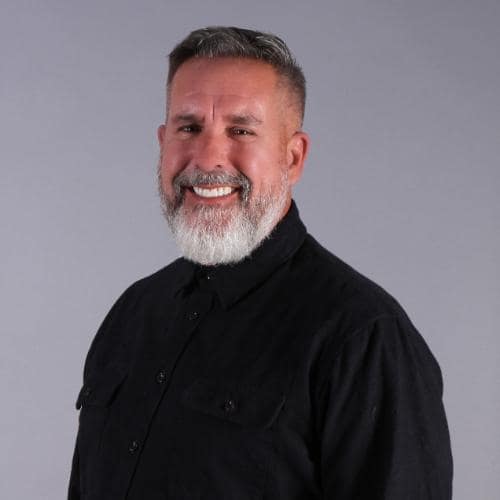Originally published on O’Dwyers PR
Nearly 40 percent of TikTok users trust the health information they see on the popular app used by 2 billion global citizens. Among daily users, that number jumps to 58 percent. However, an analysis from the University of Chicago found that almost 60 percent of health-related videos on TikTok contain misinformation.
That’s not just a content problem. It’s a credibility crisis.
Misinformation sticks because it often starts with a sliver of truth—just enough to feel familiar—before it’s twisted, repackaged and amplified by voices that value reach over rigor. Strong opinions start to feel like facts, even when they are not. Why do people turn to influencers for health advice? Is there something we can learn from them?
Influencers often speak in plain language. Their content is easily accessible. There is a relatability element to it all. In contrast, a common refrain in healthcare, for those that look elsewhere for answers, is that it can feel cold, slow or hard to navigate.
- “I don’t feel heard.”
- “It’s hard to get an appointment.”
- “I don’t understand my care plan.”
- “I can’t afford the medicine I need.”
- “They make everything so complicated—I wish they would explain it to me in plain English.”
Reasons exist for this, of course—a system designed to disintermediate patients, administrative burden, payor interference—yet, to the average person, this matters little. They just want the right treatment plan for their needs. The right medicine for their condition—without jumping through hoops, experiencing long wait times, and/or being met with a bill they struggle to pay at the end of it all.
A shared challenge: different roles, same crisis
Right now, we are nestled firmly in the post-truth era. An era those who work in healthcare know all too well. Trust in healthcare is eroding. Healthcare providers and pharmaceutical brands operate differently, yet they’re both navigating the same crisis: the collapse of institutional trust. For years, pharma has suffered from extremely low trust scores—now provider organizations are headed in the same direction unless we address the root causes.
Both are viewed as “the system,” and for many, that’s synonymous with bureaucracy, profit motives or hidden agendas.
Hospitals and health systems deliver life-saving care daily, yet they struggle to explain billing, access and outcomes in plain language. Insurance payors complicate it further—with denials, prior auth barriers, and coverage confusion that leaves patients unsure of what’s approved, what’s not and what it will cost.
The pharmaceutical industry, despite delivering breakthrough treatments at record pace, is still viewed by many as profit-first. Extremely expensive. Irrational.
Together, we face a shared truth: people are turning elsewhere for answers to their health issues. And too often, those answers are wrong.
Back in 1991, Magic Johnson stood at a podium and told the world he had HIV and abruptly retired from the game of basketball. The world stood still at that moment. At the time, an HIV diagnosis was viewed as a death sentence. Today, it’s a manageable condition—thanks to decades of work from researchers, providers and pharmaceutical innovators.
That kind of progress should be one of many things that form a foundation of trust. Yet too often, it’s overshadowed by doubt. During the COVID-19 pandemic, despite the noise of misinformation circulating online, science still led. Studies estimate that vaccines alone saved nearly 20 million lives globally in their first year.
And yet, healthcare sectors still feel the need to compete with TikTok creators, YouTube “experts,” podcasters, and Reddit threads—so they can do what they signed up to do: help people live healthier lives.
So, what happens when “I’m not a doctor” isn’t a red flag, but a reason to hit share?
Why authenticity is the only strategy that works
In a commissioned survey of 1,000 healthcare consumers, 84 percent said authenticity is “essential” or “very important” when choosing a provider. Yet authenticity is harder to demonstrate when every message is met with doubt.
People don’t need more facts. Well, maybe they need them but they sure don’t seem to want them. They need to believe what they hear.
Authentic marketing doesn’t mean warm and fuzzy messaging. It means consistency, transparency and empathy. It means tailoring your message, your messenger, and your platform to the audience. It means acknowledging beliefs that we may not agree with, but then following with the right information to help people make better decisions.
Because if your messaging feels generic, self-serving or salesy, it won’t simply get ignored, it’ll get replaced. Misinformation travels faster, sticks longer and spreads from one platform to the next ad infinitum.
Trying to “compete” with misinformation on its terms is a losing game.
The goal is to replace noise with clarity:
- Show up earlier in the patient journey, not just at the point of care.
- Work with platforms that amplify misinformation by considering YouTube health panels and TikTok- and Instagram-friendly clinician content.
- Adjust your messaging accordingly so the algorithms and AI-driven tech find you first.
- Deliver information through influencers and spokespeople that the target audience will find credible—even if you don’t agree with everything they say outside of this specific message.
Does the world really need another viral video peddling the benefits of apple cider vinegar or onions in your socks at bedtime? No, the world needs honesty again.
The bottom line: it’s a matter of public health
This isn’t a marketing problem alone. It’s a public health risk.
If patients don’t trust the care they’re offered—or the medications prescribed—they delay treatment, reject interventions or follow advice that causes harm.
Yet there’s an opportunity here, too.
Healthcare brands, regardless of the sector, that rebuild trust consistently and authentically won’t just grow—they’ll help more people live healthier lives.
And isn’t that the point?
This isn’t about going back to the way healthcare marketing used to be. It’s about redefining what it needs to be now: honest and built to connect—in an entirely authentic, human way.






